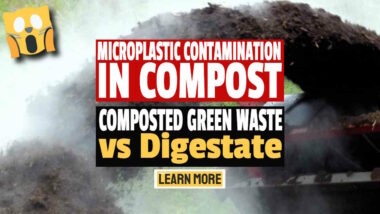Anaerobic Digestion Regulations surprisingly, don't exist in the UK. At least not all neatly bundled into a single government act or rule book. Instead, AD Plant operators must comply with a range of statutory requirements (“Laws” to you and me).
The four main UK Anaerobic Digestion Regulations which must be tackled to ensure compliance once Planning Permission has been obtained are as follows:
- UK Environmental Protection PPC Permit Requirements
- Animal By-products Regulations
- Duty of Care for Waste Handling
- Health and Safety (Health and Safety at Work Act).
Although, the UK legal requirements for consents and permits are not all neatly defined in any manner which would make it quick and simple to comply. The UK Environment Agency polices the regulations in relation to Duty of Care responsibilities, and emissions. Others administer Health and Safety roles. Animal By-products, are administered by the government veterinary service.
We've had a go at bringing them all together to help our readers.
Of the four listed above obtaining and keeping a permit is the most important. Read on to find out more, and we will break down the AD Regulations. This is an introduction to what you need to know to gain a licence to operate, and to stay compliant with the UK Anaerobic Digestion Regulations in the UK:
5 Key Things You Need to Know About Complying with Anaerobic Digestion Regulations in the UK
- In the UK, AD is regulated under the Environmental Permitting Regulations 2016, which require operators to obtain an environmental permit from the relevant environmental regulator. The regulations cover a range of activities related to AD, including the storage, treatment, and disposal of waste, emissions to air, water and land, and the management of by-products such as digestate.
- Permitting: AD operators must obtain an environmental permit before starting any regulated activity. The permit application process requires operators to provide detailed information about their site, the AD process, and the waste materials they will be processing. The environmental regulator (the EA) will assess the application and set permit conditions to ensure compliance with the regulations.
- Emissions: AD operators are required to control and monitor emissions to air, water, and land. This includes controlling odour, managing noise levels, and preventing the release of pollutants to watercourses and groundwater. Operators must also monitor and report on emissions to demonstrate compliance with permit conditions.
- Waste Management: AD operators must manage waste in accordance with the waste hierarchy, which prioritizes waste prevention, reuse, and recycling before disposal. Operators must ensure that waste materials are safely and appropriately stored, treated, and disposed of, and that any by-products such as digestate are managed in accordance with the regulations.
- Record-Keeping and Reporting: AD operators must keep detailed records of their activities and emissions to demonstrate compliance with permit conditions. This includes keeping records of waste inputs and outputs, emissions monitoring data, and any incidents or non-compliance events. Operators must also submit regular reports to the environmental regulator, which detail their activities and emissions and demonstrate compliance with permit conditions.
This presentation contains images that were used under a Creative Commons License. Click here to see the full list of images and attributions: https://link.attribute.to/cc/456301
4 Essential UK Regulations All Biogas Plant Operators Must Observe
All anaerobic digestion plant operators in the UK must comply with the regulations concerning environmental protection, animal by-products, duty of care, health and safety and waste handling!
Keep reading! Please give us a little bit of your valuable time, and in 5 to 10 short minutes we will explain our list of 4 essential UK regulations all biogas plants must comply with.
Regulation 1. Environmental Permitting
Environmental Permitting (EP) is a scheme in England and Wales, for regulating business activities that could have an impact on the environment and human health. AD plant operators must obtain a permit, or an exemption to operate and to spread digestate, and show that they are competent to operate the plant.
There are three levels of permitting, and a number of activities that entitle operators to an exemption.:
Exemptions are available for small-scale biogas digesters which are classified as non-waste facilities, but you are still required to register with the Environment Agency and provide some technical information, although no charges apply.
If your activity is not exempt, the next step in rising permit complexity is the need for a Standard Permit.
These are simplified permits used for plants which fit within a number of pre-defined standard rules, including throughput, output and nature of the material being digested and for this fixed charges apply.
If a biogas plant's method of operation doesn't fall within the rules they don't allow the adoption of a Standard Permit.
The next step up in complexity, and charges, is a “Bespoke Permit”, (in this instance variable charges apply).
This process is more costly and time-consuming but provides greater coverage and flexibility in plant operations. Permits may also be required for Spreading Digestate.
Designing an AD Plant which is shown to comply with the PAS 110 Quality Protocol can become important to reduce the degree of regulatory involvement.
Material that has been processed to PAS 110 and Quality Protocol standards is no longer regarded as a waste.
However, to spread waste material (prior to achieving PAS 110 accreditation) to agricultural and non-agricultural land to confer benefit or ecological improvement, you will still have to apply for a permit or register for an exemption.
If you do not fit the criteria for an exemption there is a Standard Rule Permit, for spreading waste material to land, and a fee will be charged.
Seeding new AD Plants may also require a permit or exemption, during plant start-up.
Regulation 2. Animal By-Products Regulations
Animal by-products (ABPs) are animal carcasses, parts of carcasses or products of animal origin that are not intended for human consumption. The Animal By-Products Regulations (ABPR) permit the treatment in approved composting and biogas premises of low-risk (Category 3) ABPs and catering waste which contains meat or which comes from premises handling meat.
High-risk (Category 2) ABPs such as manure and digestive tract content, cannot be used as feedstock in biogas plants, except, after the output has been treated to special pressure-rendering standards.
AD sites have to comply with the Animal By-Products Regulations. The outcome of this second of the UK Anaerobic Digestion Regulations is that a mesophilic AD Plant would also need to have a pasteurisation unit to make sure the end product is safe. Further information is available from the Animal and Plant Health Agency (AHA) and the HSE. via the HSE website.
Regulation 3. Duty of Care
The duty of care is a law which says you must take all reasonable steps to keep waste safe. You have a legal responsibility to ensure that you produce, store, transport and dispose of waste without harming the environment. Duty of care law is available on the UK Government Defra and Environment Agency websites. It is not strictly known as one of the anaerobic digestion regulations, but as most biogas companies transport waste in considerable quantities it is a law which will be important to them.
Regulation 4. Health and Safety at Work Regulations
Anaerobic digestion can be regarded as a chemical process with all the associated risks: flammable atmospheres, fire and explosion, toxic gases, confined spaces, asphyxiation, pressure systems, COSHH, etc.
In addition, it also incorporates gas handling and gas storage.
Therefore, it is essential that thorough hazard and risk assessments are carried out at each stage of any biogas plant project from design to installation to commissioning to implementation and operation.
Thanks for reading this article about the UK Anaerobic Digestion Regulations. We do hope you found this article useful.
At IPPTS associates consultants; we offer our services to help you comply with all of the anaerobic digestion regulations regulations, provided that you have a budget for our work:IPPTS Associates
[First published 15 October 2019. Updated March 2023.]





